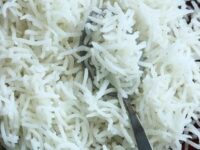Indian food companies take consistent steps to end animal cruelty

Animal Equality announces that several companies from the hospitality sector have begun sourcing cage-free eggs. This important development will address some of the most horrific cruelties inflicted on caged hens at egg farms across the country.
New Delhi [India], May 23: After exposing the horrific cruelties inflicted on hens at egg farms, Animal Equality, an animal protection organisation based in Pune, began requesting food companies from various sectors to reduce the suffering of hens raised for eggs. Amruta Ubale, Executive Director at Animal Equality says, “One significant way to reduce the suffering of these animals is to stop the practice of confining them in cages. This is a blatant violation of the ‘Five Freedoms’ and various sections of the Prevention of Cruelty to Animals Act, 1960.”
Four Seasons, Inter Continental, St. Regis, Radisson in Mumbai Andheri MIDC, and IBIS, Novotel and Grand Mercure in Bangalore are some of companies that have significantly transitioned to cage-free eggs, further propelling the global cage-free egg movement forward. There are several other companies who have initiated pilot cage-free eggs. Egg producers are also beginning to support this change. Animal Equality has persuaded several small and medium egg producers to adopt cage-free housing systems.
Ubale says, “With this move by the food companies and egg producers, India has taken its first significant step in joining a growing global movement in which food companies around the world have introduced animal protection policies, often as a result of growing consumer demand for improved animal welfare standards. These important policies not only prevent some of the unnecessary suffering these animals are forced to endure, but are also in line with the companies’ sustainability, environment and other Corporate Social Responsibility policies.”
Much of the animal agriculture business in India follows the factory farm model. Factory farming is not just cruel to animals but also devastating to the environment. Intensive animal production is a key contributor to air, water and soil pollution, greenhouse gas emissions and deforestation. Most of the animal products that come from these farms can also be harmful to consumers.
About 80% of eggs are produced in industrialised egg farms that use cages with only 20% coming from rural areas that use cage-free housing systems. Before the onset of factory farming, hens were housed in cage-free housing systems.
Ubale adds, “While cage-free does not mean cruelty-free, companies introducing such steps are taking an important step toward improving conditions for animals who suffer tremendously on factory farms.”
Media contact:
Amruta Ubale
Executive Director, Animal Equality
Cell: +91 99232 97379
Email: amrutau@animalequality.in
If you have any objection to this press release content, kindly contact pr.error.rectification@gmail.com to notify us. We will respond and rectify the situation in the next 24 hours.

Atul Tiwari is a seasoned journalist at Mumbai Times, specializing in city news, culture, and human-interest stories. With a knack for uncovering compelling narratives, Atul brings Mumbai’s vibrant spirit to life through his writing.





